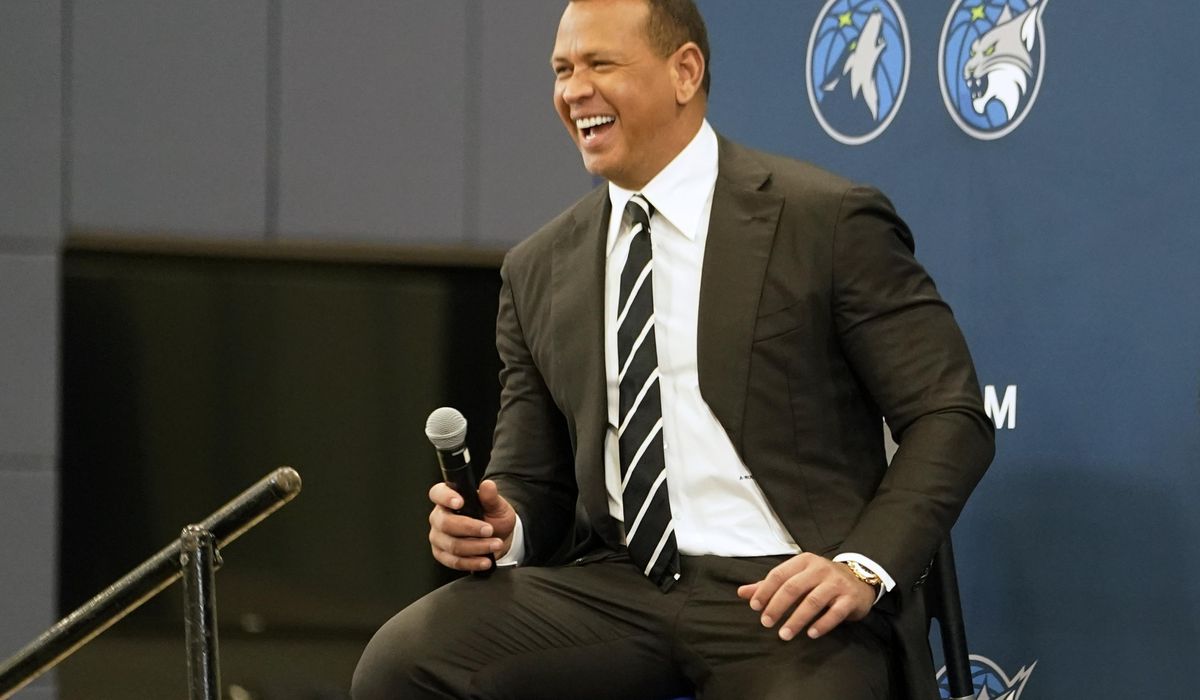
“But those who know him well say Rodriguez is a much different person in retirement than he was in the clubhouse,” wrote Jon Krawczynski, who covers the Minnesota Timberwolves, the NBA and the Vikings.
“They refer to it as A-Rod vs. Alex,” Krawczynski writes in The Athletic.
“A-Rod was the baseball player who struggled with authenticity and turned people off with a contrived demeanor meant to portray a serious athlete but ended up coming off as disingenuous. Alex is the businessman, the one who takes copious notes when he meets with mentors, dotes on his teenage daughters and laughs when someone like (Dan) Katz (Barstool Big Cat, his podcast partner) gives him a hard time.”
Good. Maybe A-Rod will get a laugh out of this column.
Much of The Athletic article was about A-Rod, the new Timberwolves owner. Much of it was also about the well-documented story about the poor young Miami boy raised by a single mother (they left out the family counting pennies tale) and how A-Rod may have been another victim of a father abandoning his family.
How much was devoted to Rodriguez, the known two-time steroid cheater who was banished from the game of baseball for one season?
It’s briefly mentioned in the 11th paragraph: “Public Enemy No. 1 on a Yankees team that tormented the Twins in the playoffs year after year, and a guy who sullied his career by getting a performance-enhancing drug suspension?”
You don’t hear about it again until the 50th graph in the story: “He also admitted to using steroids at one point of his career, was suspended for an entire season because of his role in the Biogenesis scandal … ”
Followed by this: “While he was serving the longest suspension ever issued by Major League Baseball, in 2014, Rodriguez said he looked inward and reevaluated who he was and how he interacted with people. He emerged from that time away determined to atone for his mistakes and reinvent himself, with the Timberwolves ownership another big step in that ongoing process.”
That’s it — enough to fit on the back of a baseball card. The last mention turns his lying and cheating his baseball business partners — his union brothers, his teams, Major League Baseball — into a redemption story.
This love letter appeared on Wednesday — two days after the 2022 Baseball Hall of Fame ballot came out with A-Rod’s name on it for the first time.
This is the nuclear ballot, the only one that will feature A-Rod and two of the biggest fellow cheaters, Barry Bonds and Roger Clemens, in the final year of their eligibility. It also includes for the first time David Ortiz, the well-liked former Boston Red Sox designated hitter who, according to the New York Times, tested positive for performance-enhancing drugs in 2003, in testing where the results were supposed to remain anonymous. Other cheaters on the ballot are pitcher Andy Pettitte, Manny Ramirez and Gary Sheffield (named in the Mitchell Report).
It just so happens that the only other ballplayer in The Athletic story quoted about A-Rod happens to be Ortiz — a fellow victim, who is sympathetic to A-Rod’s struggles. “Good-looking guy, big guy, power hitter, everyone wanted a piece of him,” Ortiz said. “He faced a lot of hate put toward him. He had to put up with a lot of crap. In my case, I just had to hit. He had to put up with a lot of s—-. It’s a lot, man. It’s a lot.”
Here is what could wind up being “a lot” — the possibility of A-Rod, who is in the first year of his 10 years of eligibility, winding up in Cooperstown at some point during that span, and Bonds and Clemens, in the final year of eligibility, being shut out.
Not that anyone should shed any tears for Bonds and Clemens — they are both cheaters who don’t deserve to be rewarded for their fraud. Bonds admitted to using steroids in grand jury testimony in the Balco probe, though he claimed he didn’t know what he was taking. Clemens is named in the 2007 report issued by George Mitchell about steroid use in baseball (forgive me for believing an investigation led by a top federal prosecutor and authored by a former U.S. senator who brokered peace in Northern Ireland).
For the ignorant — and there are many — steroids were banned in baseball since 1991. As far as testing, it was the players union who stood in the way until they were shamed into agreeing to it after the embarrassment of some of its highest-profile members being dragged in front of Congress.
A-Rod admitted using steroids in 2009 to ESPN after denying it in a “60 Minutes” interview in 2007. He was suspended for a full season in 2014.
But it is as if that record has been expunged in the media. In all the various reports of A-Rod’s business dealings, there was barely a mention that he had been a two-time cheater and was actually banned from the business he was in. There is zero mention of these crimes against baseball in the bios of A-Rod on both ESPN and Fox Sports, where remarkably he serves as a baseball analyst for both networks.
He has, as The Athletic pointed out, embarked on an effort to reinvent himself, and the media appears all too willing to comply.
Bonds, Clemens, Sammy Sosa (also in his final year), Mark McGwire (failed in his 10 years of eligibility) — all have been defined by their steroid cheating as much, if not more, than their accomplishments. That’s not the potential injustice here.
A-Rod is the Al Capone of baseball steroid cheaters, and for him to be on that stage while Bonds and Clemens were kept out would be the most vulgar outcome of all.
You can hear Thom Loverro on The Kevin Sheehan Show podcast.








